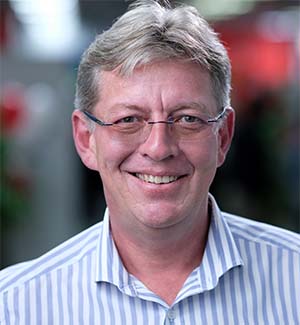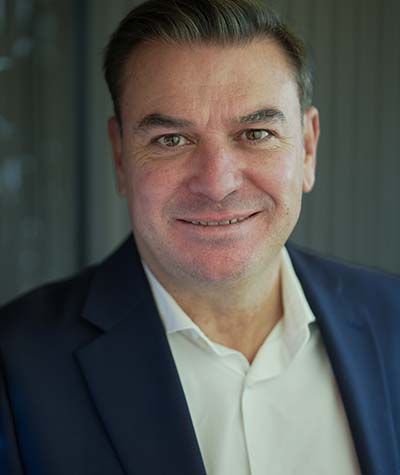The first quarter of the year has come and gone (yep! that’s how quickly time flies nowadays) and there is still uncertainty on how this year is going to unfold – not only for the local channel, but for the IT industry as a global whole.
There is the continued hype around AI and its universal impact, various vendors scrambling to get their latest updated offerings to market; the additional hype around the burgeoning data centre market that is needed to drive this new technology (and its impending impact on climate change); and a full spotlight now on what has always been the grudge purchase of security … sorry, cybersecurity … as cybercriminals adopt the new available technologies for their crimes quicker than international governments’ outdated privacy legislation allows legal security firms to use it to combat the scourge.
And we’re not even delving into the dark underbelly of geopolitics, Trump tariffs … threats, tantrums, and all … which are having an adverse ripple effect on business in almost every nation on earth. Not to mention the inertia of our own Government of National Unity (GNU) which, again, seems hellbent on stifling business.
It is, as the old Chinese curse says, going to be an interesting year …
So what is going to be the key to survival in a year that promises so much, yet so far has given little indication of being the boom year it was predicted to be with refresh cycles, AI-enabled hardware, a surge in cloud services, and the prospect of millions of upgrades with Windows 10 end of life?
Mark Davison asked some of the most prominent leaders in the local channel for their views on what reseller partners should be focusing on in the months ahead to ensure they not only survive, but thrive, in what promises to be yet another seismic, rollercoaster year in the distribution channel.
 Pierre Spies, CEO of Alviva
Pierre Spies, CEO of Alviva
A veteran of the South African IT channel for more than 30 years, Spies knows that every year of business involved in it is a tough year – and was adamant in recognising those resellers that have weathered the storm and are still doing good business.
“I can only admire and take my hat off to our reseller partners,” he says. “I thank them for their continued trust in us and cannot express enough how much we appreciate their business.”
But he does caution that this year could be just as topsy-turvy as previous years – not the milk and honey everyone is expecting.
“As always, the IT sector remains challenging,” he says. “The client computing sector seems to be suffering the most at the moment as we’re not seeing the post-Covid refresh cycles we thought we would in the local market.
“Couple this with the fact that several government departments and corporates are tightening their belts, sweating their assets as long as they can, and stretching payment cycles, then you start to understand just how tough business in the channel is right now.
“Those factors alone have had a devastating impact on some resellers,” Spies says. “Hopefully, the refresh cycle that is so sorely needed will kick-off during the course of this year. It is overdue, and will only do good for the whole industry.”
And Spies’ best advice for resellers this year?
“I cannot over-emphasise the importance of stricter financial discipline and management to our reseller partners,” he says. “We can already see that it is taking a lot longer to vet deals and ensure that the budgets for larger deals are approved – and that the finance is available and allocated – even for government and corporate deals.
“We have experienced a deterioration in payment cycles from our reseller partners,” he adds, “ and this does impact on their credit records … which, unfortunately, could impact any future business.”
Spies, however, is optimistic that there are still plenty of opportunities opening up for resellers: artificial intelligence (AI); cybersecurity; hyper converged infrastructure, migration services, consulting, and networking among others.
“But you need to choose the battles you want to engage in – the niches,” he says. “And you have to invest in the necessary skills – rather ahead of the curve than behind it.
“It will definitely be worthwhile in the longer run,” Spies says.
 Hein Engelbrecht, CEO of Mustek
Hein Engelbrecht, CEO of Mustek
Another decades-old veteran of the channel, Engelbrecht says that the continual evolution of the distribution channel adds to the number of new opportunities.
“The continued mushrooming of online marketplaces, for example,” Engelbrecht explains. “In the age of information, value generation is essential. End users have abundant choices in both price and availability for traditional products.
“This makes it crucial to provide additional value,” he says. “Providing trusted advisory and professional services to solve business problems with technology is a significant opportunity for traditional resellers looking to focus on new revenue streams.”
Cybersecurity and AI are, again, key opportunities Engelbrecht identifies.
“The global shortage of cybersecurity professionals remains a big opportunity to provide critical market services,” he says. “It’s exciting to see the exponential gains AI is making in the market and, once again, one of the most untapped business opportunities to increase efficiencies and unlock new revenue streams for any industry. Without the professional skills and services, resellers will miss out on the market opportunities that AI and cybersecurity present.
“This transformation is an exciting opportunity for traditional resellers to redefine their value in the market and to deliver value to the end user.”
And Engelbrecht is optimistic that 2025 will see the long-anticipated refresh cycles among end users.
“Windows 10 end of support (EoS) is a huge opportunity to get the upgrade cycle started,” he says. “Even the organisations sweating assets for as long as they possibly can, cannot continue on unsupported Windows PCs.”
 Craig Brunsden, CEO of Axiz
Craig Brunsden, CEO of Axiz
As one of the most pragmatic and level-headed “captains” of the IT distribution industry, Brunsden is not overawed by the phenomenon that is artificial intelligence (AI).
“With the emergence of AI as a headliner everywhere – and specifically the ‘AI-everything’ marketing race from almost every vendor – we’re entering a very confusing time in the channel, second guessing trusted strategies and being tempted by the ‘shiny new things’.” he says. “My best advice to anyone in the channel? Stay focused on doing the basics of our core business well, first and foremost, and ensure the core income platform is secure before speculating – especially where that speculation requires capital or heavy people investments.
“I do think AI will emerge with good business cases but, much like cloud, this took a long time and the pioneers who jumped first were not necessarily rewarded – often on the contrary – they paid the school fees for the rest.”
Cybersecurity, data protection, and services, Brunsden says, remain key growth opportunities – especially if vendor models show declining profitability in pure reseller sales.
“Hunt for, and invest in, those vendors that demonstrate a good, traditional channel profitability case,” Brunsden advises. “Many are asking partners to discount value to close a deal and that is not sustainable. There is a raft of vendors out there (old and new) with attractive propositions to reward new ecosystem partners who will invest with them.
“These are the ‘shiny things’ we should be interested in,” Brunsden says.
 Tim Humphreys-Davies, CEO of Pinnacle
Tim Humphreys-Davies, CEO of Pinnacle
Channel veteran Humphreys-Davies is well-versed on AI with Pinnacle being one of the first companies in the country to meaningfully adopt the new technology not only to enhance its systems in-house, but also offering solutions to its reseller partners. And he’s enthusiastic that AI will drive further growth in the channel this year.
“Success for resellers in 2025 will hinge on embracing AI, driving meaningful change from learnings and strengthening key relationships,” Humphreys-Davises says. “In addition to this, we hope resellers embrace the opportunity cybersecurity offers the industry – also that the AI wave and end of life (EoL) of Windows10 will boost end user compute device sales.
“At Pinnacle, we’re developing exciting AI initiatives that will shape the future of our industry,” he adds. “Beyond technology, we will continue to focus on turning insights into action and on continuously improving key business components – customers, vendors, stakeholders, and staff – to drive growth and success.”
 Carlos Ferreira, CEO of DCC Technologies
Carlos Ferreira, CEO of DCC Technologies
Ferreira is no stranger to the IT distribution channel having been the CFO at Gijima for a number of years before taking the helm at DCC Technologies. And while he recognises the importance of technologies like AI, he says there are more important priorities for resellers.
“Everyone is talking about AI and the advances in technology that require upgraded systems to get the most of these technological advances,” Ferreira says. “We know AI is going to change the way the world works and that the impacts will be felt across all industries.
“But, in my opinion, education is probably the single most important short-term initiative the reseller channel can invest in,” he says. “It is of the utmost importance that resellers get up to speed with the latest hardware requirements that are going to be deployed to fully take advantage of the software trends that AI is going to afford the market.
“They, in turn, need to educate their end users on the tangible benefits that these technological advancements will have on their businesses and operations.
“So, in short, if the channel wants to serve its client base well, best we start with channel education on technologies of the future and getting that thinking into end user environments,” Ferreira says. “Otherwise, expensive mistakes may be made along the way.”
 Werner Herbst, MD of First Distribution
Werner Herbst, MD of First Distribution
Herbst says that in a market that is evolving as quickly as today’s IT environment, diversification should be a priority.
“By expanding their product and service offerings, resellers can tap into new revenue streams and mitigate risks associated with market fluctuations,” Herbst says. “Additionally, embracing emerging technologies such as artificial intelligence (AI) and cloud computing can provide a competitive edge and drive innovation.
“It’s also crucial to maintain a strong focus on customer relationships and personalised service, as these elements are key to building loyalty and long-term partnerships,” he says.
“Furthermore, resellers should consider the repatriation from the cloud and the importance of having a multi-cloud strategy,” Herbst adds. “This approach enables them to assist their customers more effectively by offering flexible and tailored solutions.”
 Spencer Chen, CEO of Rectron
Spencer Chen, CEO of Rectron
While acknowledging that technologies such as AI will have major impact, Chen is clear on the more vital role that cybersecurity is going to play in both business and in the personal computing/social media space.
“As more of our work and personal lives go on to integrated online platforms, cybersecurity is becoming increasingly vital,” Chen says. “Also, with South Africa experiencing more attacks daily – from inside and outside the country – resellers need to give users more support in navigating the heightened threat landscape.
“Gone are the days when small to medium businesses (SMBs) could hide behind outdated software and systems,” he continues. “In fact, hackers are now targeting SMBs more often than corporates to exploit their weaker cybersecurity posture.
“The impact of a cyberattacks on an SMB could be critical as not only would it incapacitate the business, but personal details and critical customer data could be compromised leading to further complications,” he says.
“Implementing the latest Windows 11 device upgrade and adopting Acronis (online AI-driven software as a service platform) are some of the most effective and easily deployable options to consider when going to war against hackers,” Chen says.
 Robin Lloyd, RSA country head, Redington South Africa
Robin Lloyd, RSA country head, Redington South Africa
Lloyd, no stranger to the local channel having been head of PPS for HP at Tarsus for many years, is another who sees the potential of AI, but sees various other opportunities around the technology.
“AI is on top of everyone’s mind at the moment,” Lloyd says. “Does that mean that everyone now needs to pivot to an AI-focused strategy? In my view not necessarily … AI is reliant on data, and data integrity becomes vital.
“What you put in is what you will get out from AI,” he adds. “I would focus on the data of my organisation. There was headline a couple of years ago that said: Data will become the new gold – it is really relevant right now.
“Organisations are sitting on huge amounts of data,” Lloyd says. “So the focus, in my view, should be securing the data; observing the data; and then managing the data in your organisation.
“Data is becoming pivotal and should be a focus point,” he says. “AI will evolve from there.”

Craig Nowitz, CEO of Syntech.
Syntech directors Craig Nowitz and Ryan Martyn
Two stalwarts of the industry and the channel, Nowitz and Martyn are also swayed towards cybersecurity as a key area resellers should be aware of this year.
“The last year has been a watershed for the IT industry with cloud computing becoming mainstream and artificial intelligence (AI) dominating conversations,” says Martyn. “While popular opinion might say cloud computing has sounded the death knell for on-premise computing security, privacy, and data sovereignty concerns are actually driving a new move towards localised systems.
“The other big challenge last year – and going into 2025 – is security,” Martyn adds. “There have been so many data breaches and leaks that most governments and many enterprises are again interested in in-house systems.
“AI is also playing into this trend, with organisations looking to secure localised systems for their own large language model (LLM) training,” he says.
Overall, Martyn believes 2025 will bring more opportunities for local infrastructure growth.
Nowitz concurs: “We know AI is the future, but customers must be cognisant of the issues it brings with it, including security challenges.
“Syntech has always been focused on customer needs, so we will be expanding our solutions and software offerings to include cyber and network security,” Nowitz says. “We will also start to offer more solutions on the server and networking side.”
 Gary Pickford, MD of Tarsus Distribution
Gary Pickford, MD of Tarsus Distribution
Pickford says that relationships are the foundation of any good business and that resellers should look to strengthen theirs with their distributors – especially when times are tough.
“This is crucial for success in the ever-evolving tech industry,” he says. “And the Tarsus Ascend Partner programme is an investment that Tarsus has made to help foster these relationships. Through this programme, Tarsus partners can gain access to new markets, technologies, and customers – ultimately driving business growth.
“The programme encourages regular training, joint marketing efforts, and shared goal setting,” Pickford adds. “By working together seamlessly, resellers and their channel partners can unlock new revenue streams, improve customer satisfaction, and stay ahead of the competition.”
